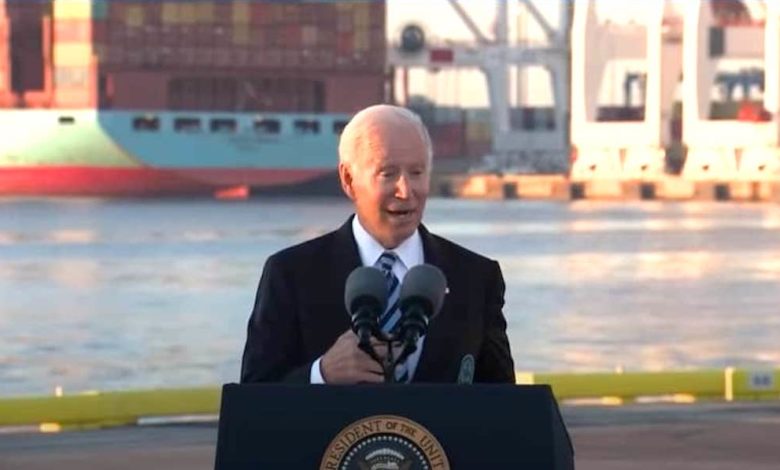Ocean Shipping Reform Act awaits Biden’s signature

The US House of Representatives yesterday voted overwhelmingly in favour of the Ocean Shipping Reform Act (OSRA), which will see the powers of regulator, the Federal Maritime Commission (FMC), greatly boosted once president Joe Biden signs the law off shortly.
OSRA was created on the back of exporters lobbying politicians to intervene during the supply chain crunch seen in the US during the pandemic. The law will allow the FMC to launch probes of containerlines’ business practices and to apply enforcement measures, require ocean common carriers to report to the FMC total import/export tonnage each calendar quarter and would bar ocean carriers from unreasonably declining opportunities for US exports.
“This bill will make progress reducing costs for families and ensuring fair treatment for American businesses—including farmers and ranchers. I look forward to signing it into law,” Biden commented yesterday.
FMC chairman Daniel Maffei said: “The strong bipartisan and bicameral support in Congress to act and address the multitude of challenges US shippers—especially exporters—have faced over the past two years is impressive.”
Maffei said OSRA will provide the FMC with enhanced authority to ensure industry players have the right incentives and that all stakeholders in the ocean freight transportation system can have a voice.
For those hoping for imminent changes they might be disappointed. The timelines stated in the bill, as highlighted by Lars Jensen from consultancy Vespucci Maritime, show any real change will only take place next year.
Even though OSRA is now getting passed there is still work to be done to define the fine print, and this might well take the next six to 12 months, Jensen pointed out.
Liner lobbying group, the World Shipping Council (WSC), has repeatedly hit out at OSRA.
“The bill is a political statement of frustration with supply chain challenges – frustrations that ocean carriers share. The problem is that the bill is not designed to fix the end-to-end supply chain congestion that the world is experiencing, and it will not and cannot fix that congestion,” commented John Butler, president and CEO of the WSC, last December.

End-to-end supply chain is too long, weakens the nation as a uncurable disease.
That the Feds “created” a new law that has yet to actually define what it will do (the fine print) speaks volumes. It’s just another feel good measure so that politicians can pat themselves on the back and announce to the public “we hear you and are doing something”, though shippers will still be waiting another year to see just what that will be. Probably too little and far too late.
The American political system is broken. The men and women working in congress and living within the blue bubble of Washington DC political elitist lifestyle, detached from their constituents, are so out of touch with reality. Congress is most intent on scoring points for their side and little concerned with getting legislation passed to actually benefit Americans across the country.